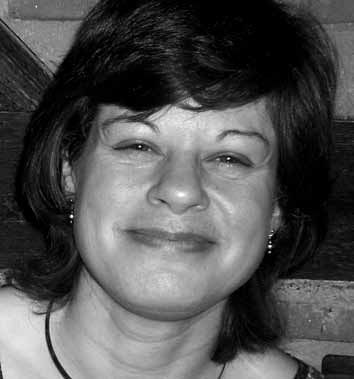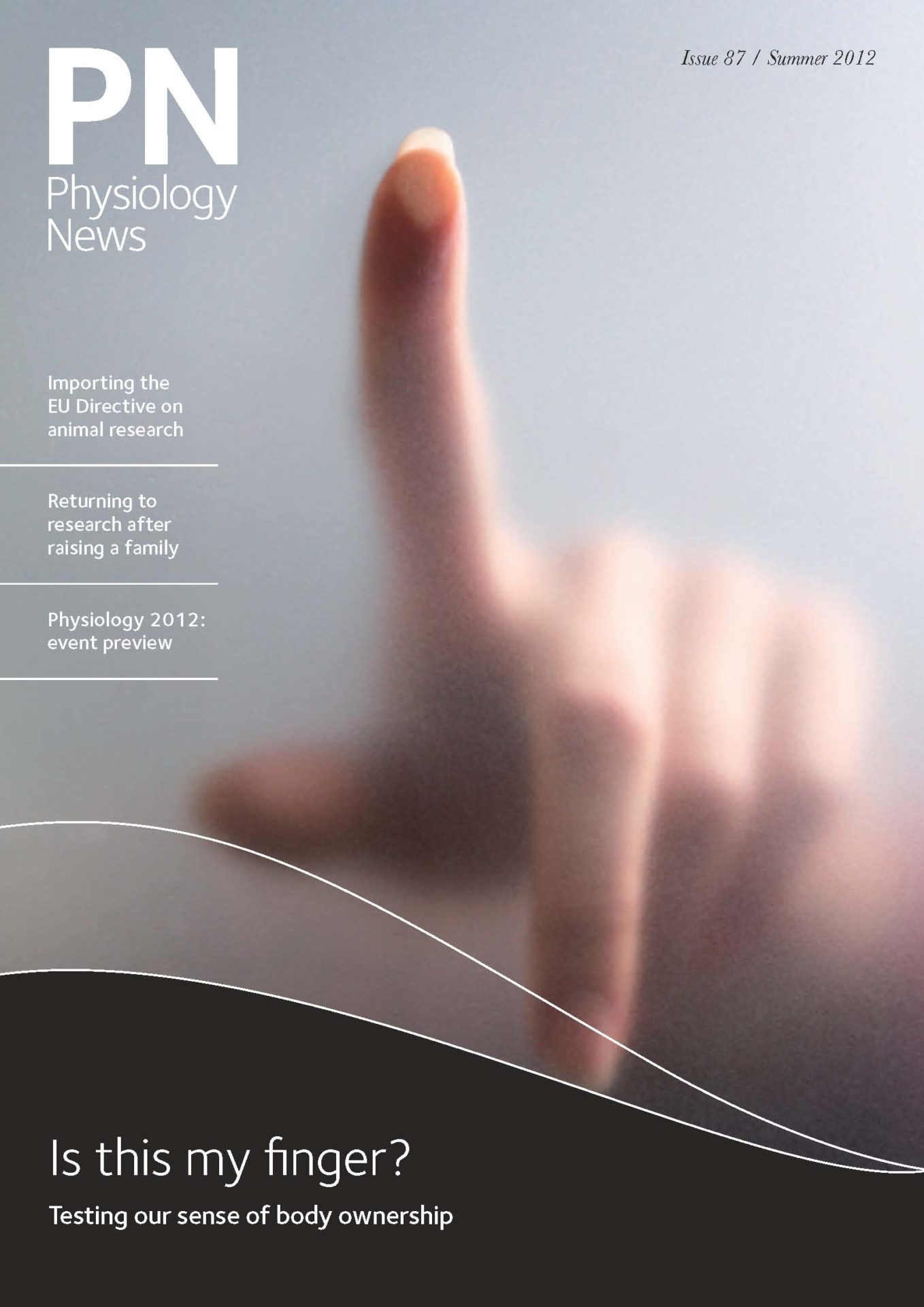
Physiology News Magazine
Obituary: Alison Douglas
1961–2012
Membership
Obituary: Alison Douglas
1961–2012
Membership
Mike Ludwig
https://doi.org/10.36866/pn.87.45

Alison was born and grew up in Northern Ireland. She obtained her PhD in uterine physiology at Queen’s University of Belfast, under the supervision of David Goldspink, on mechanisms of adaptive growth of the myometrium, with additional studies of skeletal muscle physiology in the context of low gravity (published under her maiden name of Morton).
Alison moved to Scotland in 1986 to work with Geoffrey Walsh as a postdoctoral research fellow at the University of Edinburgh. Three years later she joined John Russell’s research group on a BBSRC Link Grant, with John Bicknell and Gareth Leng, at the Babraham Institute. In 1995, Alison was appointed as a temporary lecturer, and soon after, in 1999, she was appointed to a full lectureship. She was promoted to senior lecturer in 2003, to a reader in 2008, and just last year to a personal chair in Reproductive Neuroendocrinology.
Over the past 20 years Alison had studied the importance and control of oxytocin neurons in pregnancy, parturition and lactation, and contributed to our understanding of the role of oxytocin in multiple behaviours essential to successful reproduction, including maternal behaviour and aggression, sexual behaviour, appetite and anxiety.
Amongst her many contributions is the elucidation of dynamic adaptations in oxytocin neuron responses to changing internal and external environments (e.g. pregnancy, hunger or stress) to facilitate appropriate brain responses that optimize body reactions or prevent further adverse physiological consequences.
In recent years, Alison’s interest focused on the contribution of uterine signals feeding back to the hypothalamus during parturition-related events that may lead to inappropriate preterm labour. With integrated studies on neuronal activation and secretion mechanisms, she investigated the role of stress and immune mechanisms in spontaneous abortion. In her research career she became a leading international authority on the neuroendocrine adaptations in pregnancy that lead to successful delivery.
Alison was a member of several societies; she joined The Physiological Society in 1990 and remained a loyal member until her death. She continued as Chairman of the British Society for Neuroendocrinology, despite illness. She was especially concerned to support younger scientists at early stages of their careers.
Alison built an extensive network of national and international collaborations and warm friendships. Within the Neuroendocrinology group here in Edinburgh, she was a cherished colleague, always cheerful, positive and supportive – attributes sometimes hard to find in the academic environment. I have always felt that we have something special here in Edinburgh – a team of academics with their groups working in related fields, competing but maximizing collaboration and support. Alison was a corner stone of this.Alison loved her husband Stephen, and her two golden retrievers, Sasha and Suki. She worked with the girl guides, and, in the little spare time left, she liked to go sailing.
Sadly, in 2009, she was diagnosed with breast cancer and, despite all recent advances in treating this disease, her positive attitude and remarkable courage, she died at the Marie Curie Hospice in Edinburgh on 9 May 2012. Her untimely death has robbed us all of not only a gifted and prolific scientist, but also a wonderful friend and colleague.
